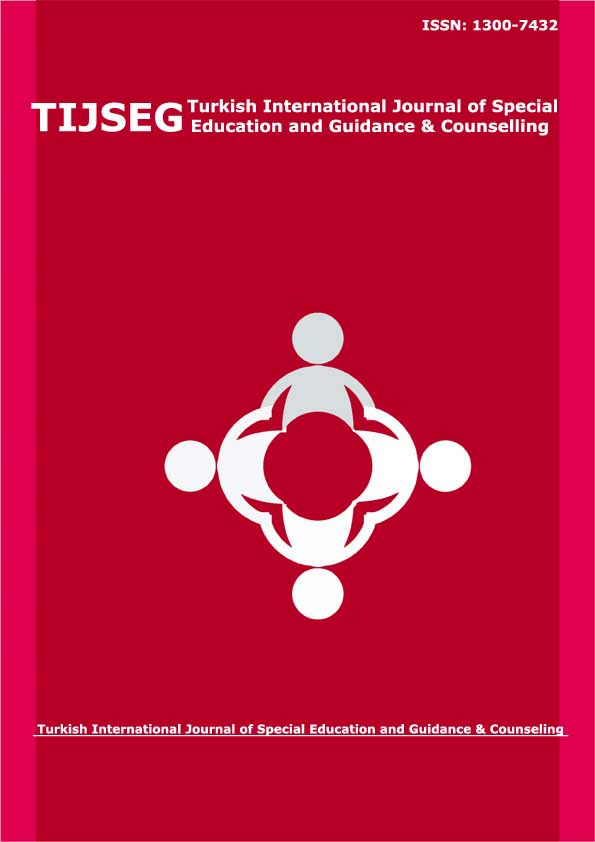
Turkish International Journal of Special Education and Guidance & Counselling
Yazarlar: Zihniye OKRAY, Güley BİLGİ ABATAY
Konular:
Anahtar Kelimeler:Burn-out,Job satisfaction,Head nurse,TRNC,Primary health
Özet: The purpose of the study was to compare job burn-out and job satisfaction among nurses of primary health care and inpatient treatment instutitions according to some socio-demographical variables. Sample of the study was formed from volunteer nurses who was working in primary health care and inpatient treatment institutions of TRNC Health Ministery. Sociodemographic data form prepared by the researcher, Maslach Burn Out Inventory and Minessota Job Satisfaction Scale were administered to the sample. 55.7% of the participanst was working in Inpatient Treatment Institutions and 44.3% of the participants was working in Primary Health Care Facilities. Although there was no statistical significance female participants had less emotional exhaustion, more personal accomplisment and more job satisfaction than male participants. In emotional exhaustion subscale male participants have more exhaustion than female participants ( F: 4.616, t: 0.034, p: 0.025, p<0.05). Emotional exhaustion is negatively correlated (r2: -0,324, p<0,01) and internal satisfaction is positively correlated (r2: 0,227, p<0,05) with age. Single participants( 31,58±6,89) are more emotionally exhausted ( F: 3,288, t: 0,025, p: 0,045) than married couples (25,64±7,18). Also single participants(27,83±6,50) have more external satisfaction (F: 4,144, t:0,009, p:0,030, p<0,05) than married (24,13± 3,76) and divorced (20,60±3,57) participants. Head Nurses (35,50±0,70), are the most emotionally exhausted (F: 3,687, t:0,029, p: 0,038. p<0,05) group among responsible nurses (21,44±5,89) and nurses (26,44±7,35). Cumulative working years in occupation is negatively correlated (r: -0,292. P: 0,006, p<0,01) with emotional exhaustion. Although there are some contradictions about the relationships between sociodemographical variables that are most effective in literature in this study socio demographical variables are effective factors on job burn out and job satisfaction. Burnout syndrome awareness should be raised and also individual and organization precautions must be taken.